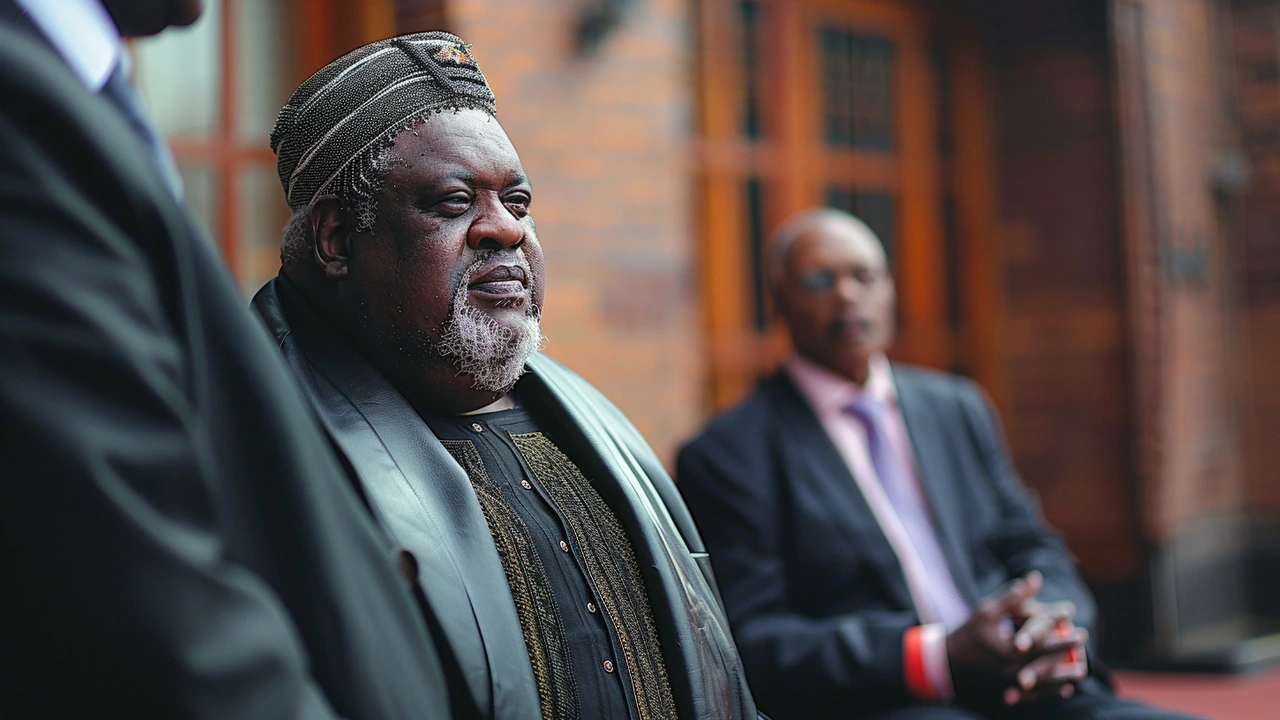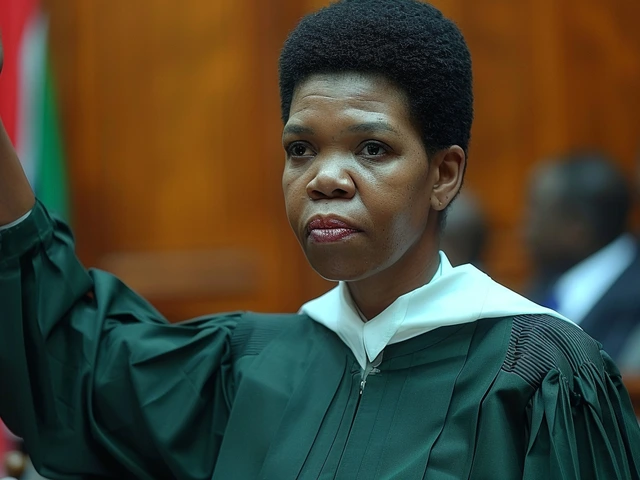Introduction: Legal Battle Takes Center Stage
A pivotal legal challenge against the financial benefits accorded to Zulu King Misuzulu kaZwelithini by the KwaZulu-Natal government is primed to be argued in court. The challenge, spearheaded by Prince Mbonisi Zulu, the king's uncle, seeks to annul the king's monthly salary along with other financial advantages bestowed upon him as the chairperson of the Ingonyama Trust Board. As this legal battle unfolds, the implications for both the Zulu royal family and the broader KwaZulu-Natal community are substantial.
The Root of the Conflict
The core of this lawsuit rests on the financial privileges King Misuzulu kaZwelithini enjoys in his dual role as monarch and chairperson of the Ingonyama Trust Board. The Ingonyama Trust is responsible for managing vast portions of land within KwaZulu-Natal, making its chairperson a figure of significant influence. Since ascending to the throne, King Misuzulu has embodied this powerful dual position, but his uncle, Prince Mbonisi Zulu, has been relentless in his opposition.
According to Prince Mbonisi, the king's fiscal benefits are not only exorbitant but unwarranted. In his view, the resources allocated to King Misuzulu could be better utilized elsewhere, perhaps for the broader benefit of the Zulu nation. This particular contention is but a chapter in a larger narrative that questions the legitimacy of King Misuzulu's reign. Notably, Prince Mbonisi has filed multiple court applications challenging his nephew’s appointment as the head of the Zulu nation.
Arguments to be Presented in Court
As court proceedings commence, the legal team representing King Misuzulu is expected to argue fervently against the repeal of his financial benefits. Traditional prime minister Thulasizwe Buthelezi has voiced his confidence in a favorable verdict, citing the law as their primary weapon. Buthelezi underscores that King Misuzulu's responsibilities go beyond ceremonial duties; they encompass critical administrative tasks such as appointing a prime minister, installing amakhosi, and ensuring the continued functionality of the Ingonyama Trust.
Buthelezi’s stance implies that stripping the king of his financial support would hamper his ability to fulfill these duties effectively. Such a precedent might not only weaken the current monarch's position but also set a concerning trend for future leaders. The argument thus appears to hinge on the broader ramifications of divesting a royal figure of essential financial instruments necessary for the effective governance of the trust lands.
The Broader Implications
This case is not an isolated dispute but rather a flashpoint in the ongoing struggle concerning the legitimacy and power structures within the Zulu monarchy. The outcome of this case has far-reaching implications for the power dynamics within the royal family and the governance of the Ingonyama Trust. A ruling in Prince Mbonisi's favor could embolden future challenges against the king, perhaps creating a landscape fraught with continuous legal battles.
Conversely, a victory for King Misuzulu would send a message of judicial affirmation for his reign and the inherent financial support structure underpinning his role. Such an outcome could consolidate his position and quell opposition, at least temporarily. Meanwhile, the spectacle of this high-profile legal clash has drawn considerable public interest, not just within KwaZulu-Natal but across South Africa.
The Role of the Ingonyama Trust
The Ingonyama Trust, established in 1994, administers nearly 30% of the land in KwaZulu-Natal on behalf of the Zulu people. The trust’s scope of work includes land use and management, often intersecting with traditional customs and modern governance. Given its extensive land holdings, the chairperson of the Ingonyama Trust wields substantial power over regional development and the livelihoods of many Zulu citizens.
If the legal challenge succeeds, the subsequent disruption in the leadership of the trust might translate into broader social and economic consequences for the community. It brings into question how such a transition would be managed and whether it would affect ongoing and future projects facilitated by the trust. The function of the trust and its leadership under the king holds significant sway in the socio-economic realities of KwaZulu-Natal's populace.
The Stakes for All Parties Involved
This legal contest is more than a clash of egos within the royal family; it reflects deeper issues of governance, financial ethics, and the balance of traditional and modern roles. Prince Mbonisi Zulu's challenge raises a critical conversation about accountability, transparency, and the rightful use of resources allocated to traditional leaders. His persistence suggests that the dispute is rooted in more profound disagreements within the royal family, possibly extending to ideologies about leadership and resource management.
For King Misuzulu, this legal opposition tests his sovereignty at a fundamental level. While the support from his traditional prime minister and legal team portrays an image of resilience and confidence, the court's decision holds the potential to redefine his reign. King Misuzulu's ability to navigate this legal challenge successfully could bolster his authority and affirm his place as the undisputed head of the Zulu nation.
Public and Media Perception
The ongoing legal battle has captured significant media attention, adding a layer of public scrutiny to the proceedings. Various factions within the Zulu community and South Africa at large watch closely, as the final verdict will inevitably influence perceptions of the monarchy's legitimacy and its role in contemporary governance. Public opinion remains divided, with some advocating for the preservation of traditional structures and others pushing for reform and greater accountability.
Media coverage of this legal saga has ranged from neutral reportage to more pointed commentary and analysis. Some commentators argue that the challenge is a necessary reckoning for a longstanding institution that must adapt to modern expectations of transparency and fairness. Others caution against destabilizing a revered cultural leadership at the risk of socio-political fallout.
Conclusion: A Nation Awaits the Verdict
As the court date approaches, the anticipation surrounding the outcome grows ever more palpable. This legal challenge extends beyond a mere familial dispute; it embodies the intersection of tradition, governance, and modernity in KwaZulu-Natal. The decision rendered by the court will not only determine the financial future of King Misuzulu kaZwelithini but also set a precedent for the treatment of traditional leadership roles within the South African legal framework.
While the immediate legal arguments focus on the king’s financial benefits, the broader discussion encompasses the functionality and ethical governance of significant cultural institutions like the Ingonyama Trust. As the Zulu nation and the wider South African community await the court’s ruling, the implications of this case echo far beyond the courtroom, affecting the legacy and future of Zulu monarchy itself.







Write a comment